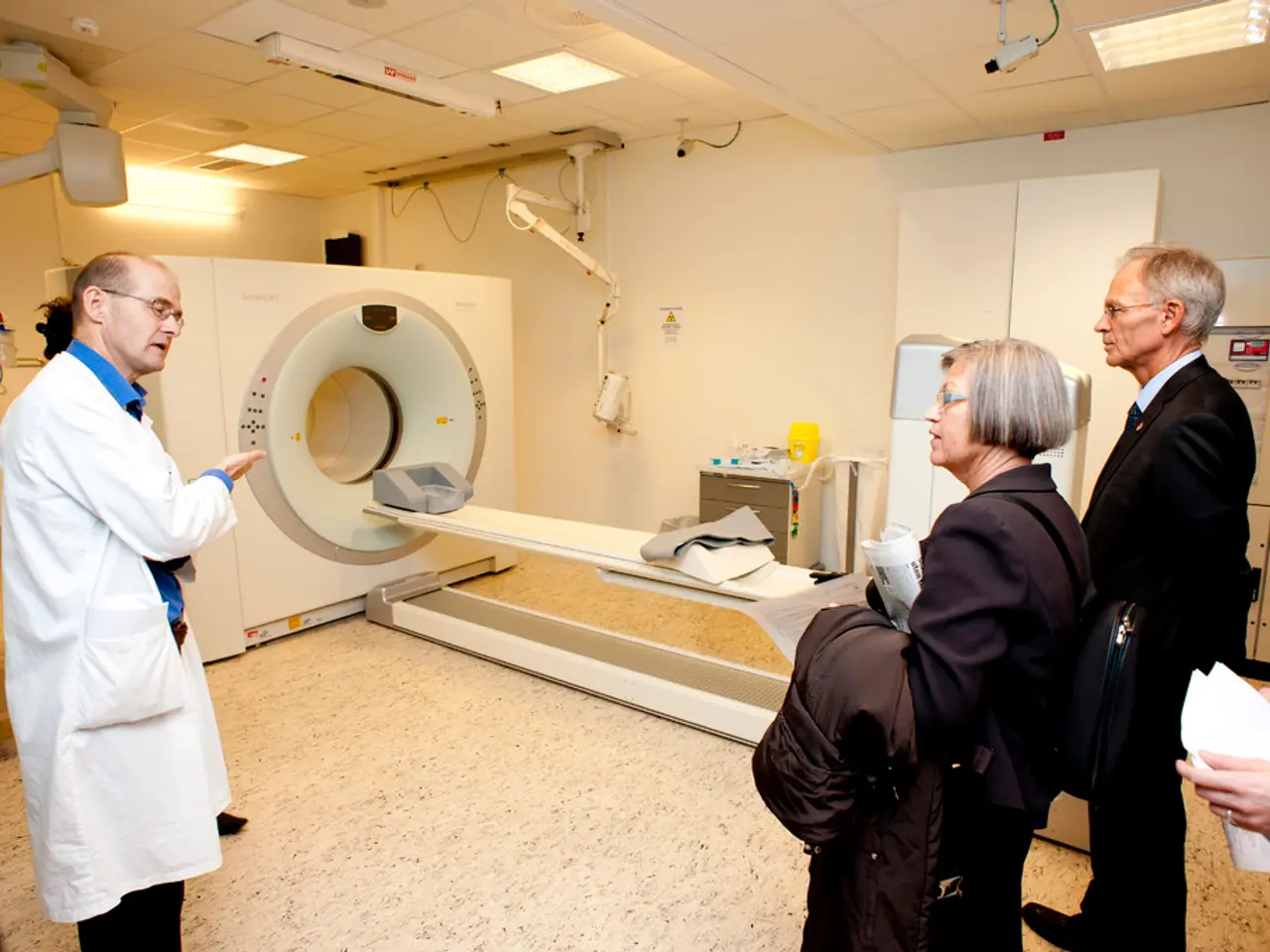Lawmakers Grill Pharmaceutical Companies Over Telemedicine Connections
In a recent development, a group of U.S. senators, including Dick Durbin, Peter Welch, Elizabeth Warren, and Bernie Sanders, have launched an investigation into Eli Lilly's LillyDirect and Pfizer's PfizerForAll telehealth platforms. These platforms allow patients to set up appointments with healthcare providers and receive medications at home.
The senators' concerns centre around the potential influence these platforms may have on prescription drug choices. According to reports, a high percentage of telehealth visits on LillyDirect (74%) and PfizerForAll (85%) result in prescriptions. Moreover, patients using LillyDirect are six times more likely to be prescribed a Lilly product compared to other brands, and PfizerForAll includes resources tied to Pfizer's product lineup, such as COVID-19 treatments and migraine drugs.
The senators are particularly worried about overprescribing, as the high prescription rates suggest that prescriptions may often be given based on demand rather than careful clinical evaluation. Some telehealth providers reportedly do not conduct video consultations but rely on online questionnaires, increasing the risk of inappropriate or unnecessary prescriptions.
Another concern is the limited patient-provider relationship. Telehealth providers operate as independent contractors, quickly processing multiple consultations with minimal continuity of care, which incentivizes speed over thorough clinical assessment.
The senators also point out the extensive data sharing between telehealth platforms and pharmaceutical companies. Detailed patient data, including demographics, health metrics, medication adherence, and contact information, is shared extensively. This data could potentially be used to target marketing efforts or influence prescriber behavior beyond legal limits.
Senators worry that these practices could skirt regulations designed to prevent pharmaceutical companies from exerting undue influence on prescribing decisions. Although no overt financial incentives to prescribers were found, the underlying system may facilitate implicit pressures or targeted sales tactics.
In response to the senators' letters, both companies, Eli Lilly and Pfizer, have been given until November 25 to reply. The next step will come once the companies respond, and lawmakers decide whether to pursue further action.
LillyDirect, Eli Lilly's telehealth platform, is designed to help people with long-term conditions find care more easily. No provider on LillyDirect is required to send business back to Lilly, and patients can use any doctor they choose. Lilly has directed people to its frequently asked questions page for more information.
Pfizer, on the other hand, has not responded publicly to the senators' letter regarding their telehealth platform, PfizerForAll.
The senators call for increased oversight, transparency, and potentially new regulations to ensure that prescribing decisions in these telehealth models prioritize patient care rather than pharmaceutical profit motives. They warn these practices risk eroding public trust in telehealth services and the healthcare system generally if unchecked.
- The investigation launched by U.S. senators into LillyDirect and PfizerForAll, telehealth platforms, extends beyond health-and-wellness, as concerns arise about the potential impact of financial interests on prescription drug choices.
- The business model of these telehealth platforms, particularly LillyDirect and PfizerForAll, raises political concerns due to the extensive data sharing between them and pharmaceutical companies, which could be exploited for marketing purposes or to influence prescriber behavior.
- The senators' call for increased oversight and transparency in the telehealth industry is not limited to general-news but includes suggestions for new regulations to prevent telehealth platforms from prioritizing pharmaceutical profit motives over patient care, potentially jeopardizing public trust in the healthcare system.





